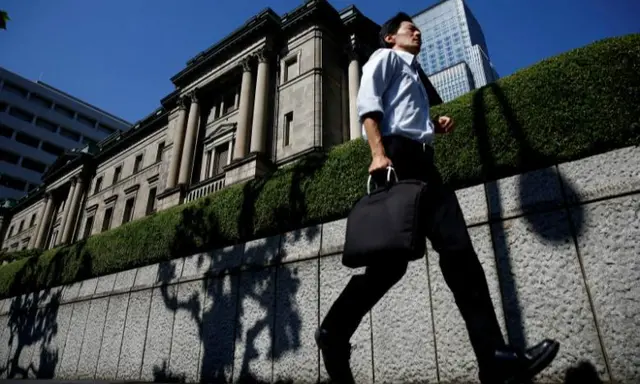The Bank of Japan will likely choose to deepen negative interest rates than expand its bond purchases if more policy easing is needed, as the cost of cutting rates is less than topping up an already huge bond-buying program, former central bank policymaker Sayuri Shirai said on Monday.
Shirai, who was an International Monetary Fund economist before serving a five-year term as BOJ board member until March, also said it was hard for the central bank to buy foreign bonds as that goes against an agreement between the Group of 20 nations to refrain from competitive currency devaluation.
"Buying foreign bonds would have an impact on the currency market, so it would be difficult to do under the current G-20 framework," said Shirai, now a professor at Japan's Keio University.
Shirai said the BOJ's purchases of long-term bonds have had a much bigger effect in flattening the yield curve and hurting financial institutions' profits than negative rates. The BOJ's bond buying was also drying up market liquidity, she said.
"The BOJ shouldn't ease further. If it were to ease, it will probably choose to deepen negative rates rather than expand bond purchases because the demerits of accelerating bond buying are bigger than those of rate cuts," she said.
The comments by Shirai, who retains close contact with policymakers across the globe, come ahead of the BOJ's policy meeting on Sept. 20-21, when it will conduct a comprehensive assessment of the effects of its policy framework that combines negative rates with a huge asset-buying program.
Once a vocal advocate of BOJ Governor Haruhiko Kuroda's radical monetary experiment, Shirai has recently warned of the rising cost of maintaining a massive stimulus program for too long.
While undesirable, the BOJ may be forced to ease this month if it maintains its pledge to achieve 2 percent inflation as soon as possible, since the comprehensive assessment will show Japan won't see the price target being reached any time soon, she said.
"Given the BOJ has been committed to doing additional monetary easing in case the path toward 2 percent inflation is questioned, it's hard to think how the central bank can get away with not easing this month."
The BOJ decided in January to charge a 0.1 percent interest on a portion of excess reserves financial institutions park with the central bank. It has maintained that rate so far, including at its previous policy meeting in July.
Shirai also dismissed speculation about a possible change to the BOJ's base money target--set at 80 trillion yen--to a range of 70-90 trillion yen. Proponents of this idea say it will give the central bank more flexibility in its bond buying.
"It's inappropriate to set such an ambiguous range. It would only heighten market volatility by causing confusion," she said.
Kuroda on Monday signaled his readiness to ease further using existing or new tools, suggesting he has no intention of watering down the price goal.
(REUTERS)
 简体中文
简体中文

